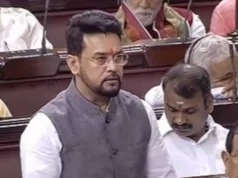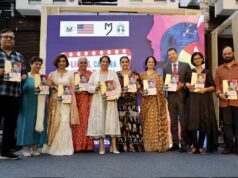A relatively unknown singer rarely gets the chance to record a song for the original soundtrack (OST) of a Korean drama in South Korea’s thriving entertainment industry.However, according to K-pop composer Seo Gi-jun, fans of music are introduced to newer voices when it occurs.
Many musicians’ careers have been revitalized by K-dramas, from singer Punch, whose collaboration with EXO group member Chanyeol, “Stay With Me,” which was made famous by the blockbuster drama “Goblin” in 2016, to artist Gaho, who became famous when he sang “Start Over” for the movie “Itaewon Class.”
“There have been instances in which an OST contributed to a singer’s rise in popularity.Goblin’ contributed to the song performed by Punch and Chanyeol’s popularity.Additionally, Gaho gained fame following the success of “Itaewon Class,” according to South Korea.
Seo added that due to the fact that the majority of these songs are sung by leading singers, it is uncommon for up-and-coming artists to be a part of an OST.
“Many relatively unknown singers gain popularity through K-drama soundtracks.However, you must also be aware that many lesser-known singers find it challenging to sing a song for an OST.Because these songs typically go to singers who are already well-known, it happens very rarely,” he stated.
Even though an OST is a part of a show, it is still very much its own thing. You don’t have to be a fan of K-drama to enjoy its album.
Superhit K-dramas like ‘Crash Landing On You,’ ‘Descendents of the Sun,’ and ‘Search:’ not only have strong ensemble cast performances but also compelling plots.The original songs that pushed the plot forward are to blame for the songs like “WWW,” “Hospital Playlist,” “Something in the Rain,” and “One Spring Night”‘s popularity.
Seo, who made his debut in 2012 with the song “Love Technique” by Japanese singer Koda Kumi, acknowledged that a successful OST has a significant impact on the popularity of a Korean drama.
“Usually, people think that drama is more important, and OSTs are popular because drama is popular.As a composer, an OST is more significant to me,” he added.
OSTs are Korean dramas’ equivalent of songs in Indian films.
“OSTs are typically absent from Korean movies.The composer, whose credits include AKMU’s “Last Goodbye” and Jung In’s “Actually I’m” from the Korean series “Yong-pal” from 2015, stated, “They have original sound (background score) but not songs.”
Web optimization, who has partaken recorded as a hard copy and organizing around 80 melodies, said a maker doesn’t have the foggiest idea when and where the following position could emerge out of.
The fact that there is no set schedule for this job is one of the challenges of being a composer.Most of the time, customers just want songs whenever they want them.”Can you make a song by next week?” is a common question.”In Seoul, this is common practice,” he stated.
An OST requires just as much effort to produce as a typical, flashy K-pop song does.However, there are budgetary constraints.
One song in an OST costs less to produce than a K-pop song.”If we exclude the money paid to the composer, typically it is 1 million to 1.5 million won (roughly Rs 90,000),” he added.
It is interesting that Seo, who disliked school as a child, also teaches music at Baekseok Art University in South Korea.
“(Growing up), I zeroed in on music and I began my music concentrates on in college and that has been my profession till now,” he said.
Seo is expanding the scope of music production in South Korea with the recent establishment of Gangnam Indie Records.
The musician responded, “Maybe, I’ll record another OST next week,” when asked what might be his next project.






